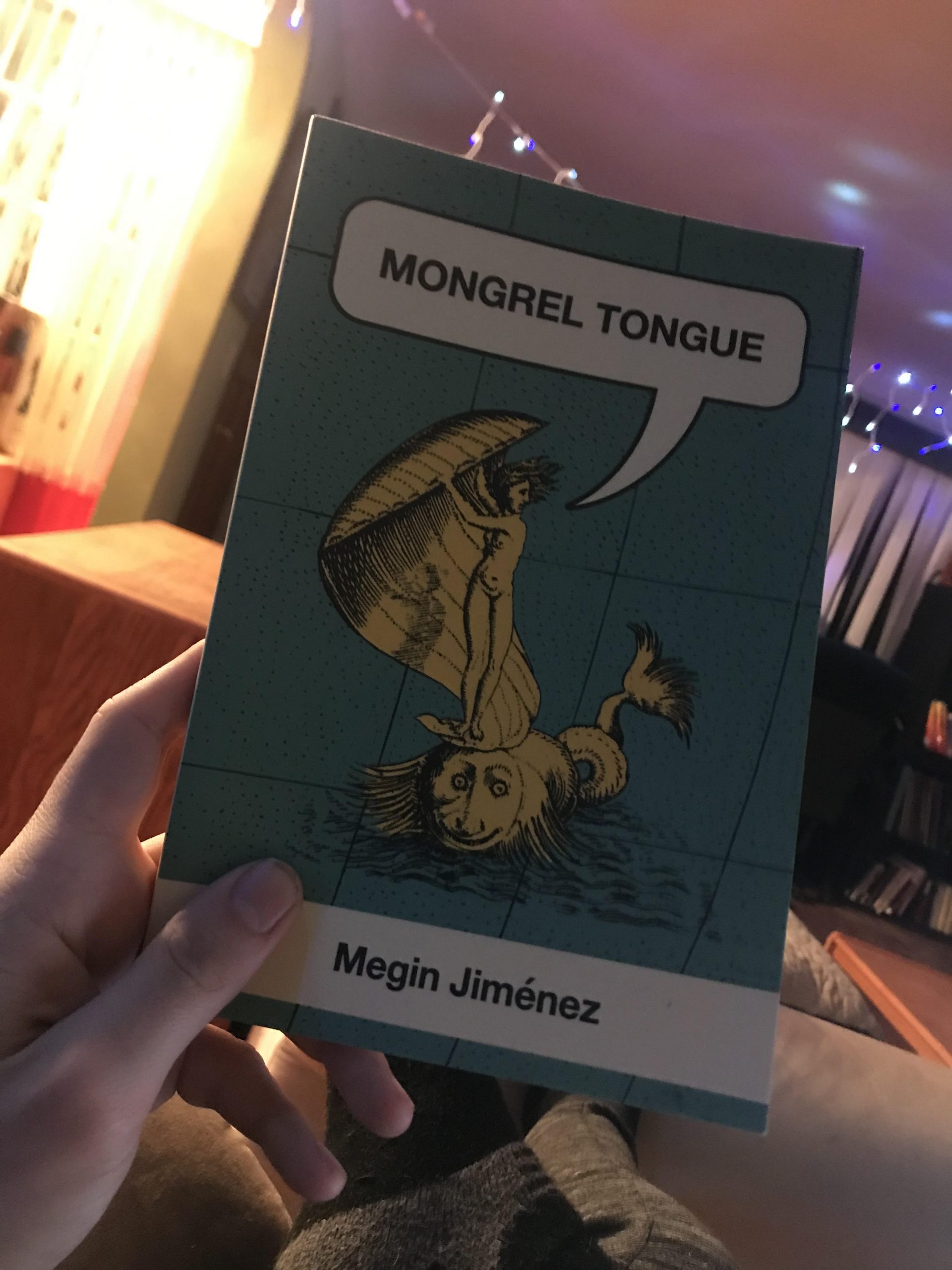Mongrel Tongue has the presentation and format of a professional author- reminding me of when I would first read poetry books outside of what I knew I already liked. The sections of the book are clearly marked and there is a flow to the progression that reminds me of old poetry formats, where a book could be divided into 12 cantos and each cantos has 3 poems to tell an over arching story with seemingly disjointed poems. This isn’t something I believe the author could fully generate independently, so you know they are an author who reads and writes very often. I would feel safe to say she probably has it as part of her identity.
The book had some bad tidings before reading. It is often put into woman studies sections and categories. This realm has people who will argue full force that a work is work because of the subject matter, and not the prose, and any negative comment about any work in the section is an attack on the section as a whole. People working as agents of bigger issues then any individual book who poison the entire subject matter. So its important to remember what lens you are reading this in- I’m not going to tell you how to read a book but lets leave that baggage at the door. There are some phrases and moments in the book that could raise suspicion for someone wanting to attack the works. I feel if you did not know the author and if you did not see the book in the woman studies section, you would never for a moment have that feeling.
Growing up, I was a huge fan of Gabriel García Márquez. Half of Megin Jimenez method of poetry reminds me of his works, particularly the broken translation and meanings. The way people seem to speak to each other with what is said rather than dialogue. It gives an alien feeling while still very readable. Some might say pretentious but I think words like that belong to those who don’t enjoy the style. I enjoy it immensely to be honest, an acquired taste from my youth.
Then there is the other half.
The creative writing student who was told to make sure as many words as possible give readers concrete words to help give visuals to the audience. The free form poetry written in a paragraph. The coffee shop poetry slam subject matter arising again and again. Perhaps it is the contrast of when it’s not happening that make the moments who the author doesn’t write like this really shine. “The ocean is the only thing to see”. It was so free from all the trappings, containing so many meanings, holding the themes of a translation and a traveler in exile. It makes the series of sentences filled with objects that go through specific visual changes feel like a grocer list to read.
Overall, I would say it is a good book pushing into great, but perhaps a little short for its price. Ending at just 68 pages the whole thing can be read in a half an hour. It sports many of the qualities I dislike about Amazon style self publishing, such as three blank pages in a row. There is always a reader who wants to tell me that leaving things out is what makes what is left behind shine, but to someone who reads 10 poetry books a month it just comes off as padding- especially when the last 1/3rd of the book breaks the overall theme and becomes a free for all of different poems the author has been working on. Leaves the feeling that the real meat of the book is about 45 pages- not even long enough to give to a friend to read for their plane ride. An unforgettable good-pushing-great book, that is too short for me to recommend to anyone.



